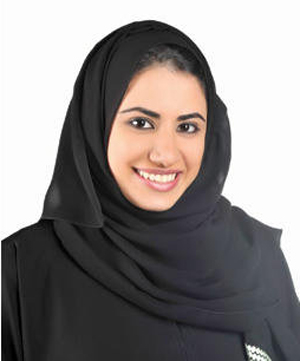Jeddah, Feb 14: Engaging more women in the workforce in Saudi Arabia is a key pillar in turning the recommendations of Vision 2030 into reality.

She told Arab News: “It makes me sad when I hear this (saying). In CellA (a network for professional women in Saudi Arabia), the idea is to surround yourself with positive energy by meeting other women who are encouraging, who believe that when they see you succeeding in your organization, it’s a success for all women.”
CellA, which means “connection” in Arabic, is the brainchild of Attar and her partner Ghada Al-Arifi.
Since they started the non-profit initiative in 2011, they have managed to connect qualified, talented women with employers who wish to utilize their skills and create a gender balance in the workplace. They hold regular meetings in Jeddah, Riyadh and the Eastern Province.
Since the beginning of the 2000s, the number of working women has been increasing in Saudi Arabia.
According to the Labor Ministry, as of 2016 there were 477,000 Saudi women working in the private sector.
The number is set to rise further following Vision 2030, which states that a major goal is “to increase women’s participation in the workforce from 22 percent to 30 percent” by 2030.
“Sometimes we have companies who are looking to implement (Vision 2030) and hire more women, but they ask: ‘Where are the women? We can’t find women’,” said Attar.
“That baffles me, because through this network I’ve met so many talented women who are ambitious, well-educated and want to find rewarding careers.
“So there’s a gap. I hope CellA is filling at least a small part of that gap to help women find rewarding careers and pursue their dreams.”
Attar’s career in the male-dominant field of information technology (IT) drove her to stand for all working women in her society. She believes the great thing about technology is that “it levels the playing field.”
Recruiters need hard work and talent, but she thinks Saudi society still has a long way to go to encourage more women in STEM fields (science, technology, engineering and math).
After finishing high school, she could not find an engineering school that enrols women. So she went to Dar Al-Hekma Private University for women in Jeddah and studied management information system (MIS), which she thought was “a great place to grow and flourish.”
She then pursued a master’s degree in business, specializing in entrepreneurship and technology management at the University of Waterloo in Canada.
Being a working mother with two children, she chose to do another master’s degree in software engineering and take evening classes at Prince Sultan University in Riyadh, where she is now finishing her thesis.
In 2006, she started working in business operations at Cisco in Riyadh, staying there for 10 years before joining the Saudi Telecommunication Co. (STC) as the female segment’s consumer insights manager.
“We’d like to have a better flow of opportunities where women can get the same access to opportunities,” said Attar.
“If she’s looking for a job, if she’s an investor and looking for business ideas, or if she’s a business owner and looking for clients, we’re creating a platform for women to empower and enable each other. We’re developing an environment where women help women.”
CellA invites inspirational figures who broke the glass ceiling to speak about their stories. They have invited businesswoman Lubna Al-Olayan and Nahed Taher, CEO of Gulf One Investment Bank.
“What I’m most proud of is that a lot of these women come out of these events with very powerful positive energy that they see other women who’ve done it,” said Attar.
“They feel inspired and learn from others, or they find a woman to hire or a partner, so it’s amazing what stories have come out just by enabling these women to meet and help each other.”
The initiative also run development workshops where small groups of women strengthen their networking and self-introduction skills.
“We offer a safe environment where you can practice, and other women you trust can give you feedback, so you can feel more confident,” said Attar. “The more you know about people and what they can do, the better you can recommend them.”
The meetings are for women only, but men can support them by recruiting, sponsoring meetings and recognizing talented women.
The challenges faced in the technology job market are that women need the right training and internships to become favored candidates.
“I think women need more experience in technology in order for them to develop their talents,” said Attar.
Her experience in IT was enhanced by joining internships at Cisco, developed by a Saudi management that focused on both men and women.
“I wish more companies would take on the challenge of inviting interns and giving them real projects to work on.”








Comments
Add new comment